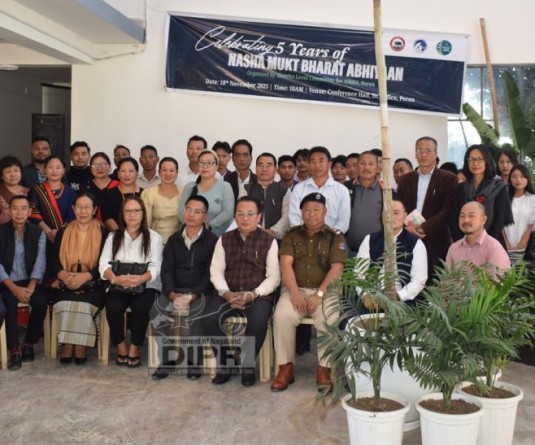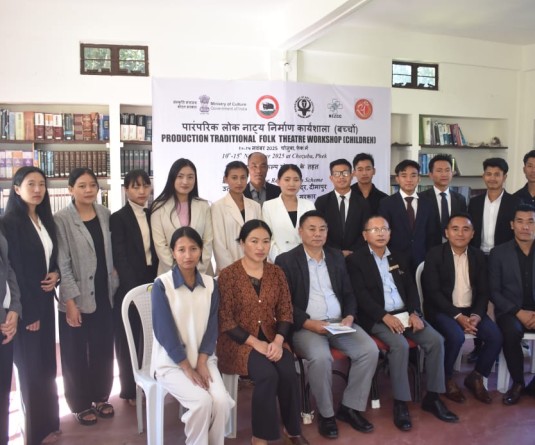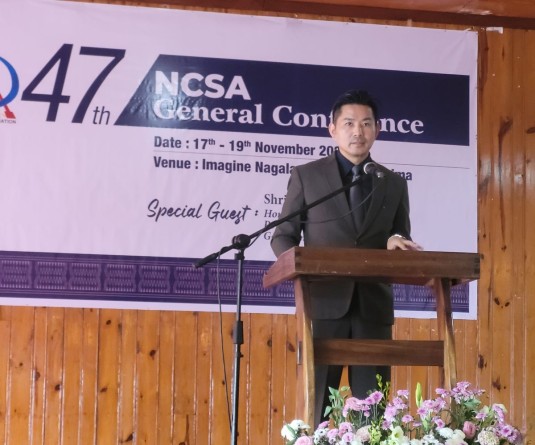
Delhi High Court restores citizenship of Naga human right activist Luingam Luithui and Peingamla
Chiang Mai, August 29 (MExN): In a significant order passed on August 23, the Delhi High Court has affirmed and restored the citizenship rights of human rights activist Luingam Luithui and his wife Peingamla.
The Court ruled that it is due to the “unconstitutional acts” of the Government of India (GoI) that Luingam Luithui and his wife were forced to take Canadian citizenship; and that they remained Indian citizens throughout this period, as they never gave up their citizenship voluntarily.
A two-member Bench comprising Acting Chief Justice of Delhi High Court Justice Geeta Mittal and Justice Shankar pronounced the order.
The Asia Indigenous Peoples Pact (AIPP) informed this in a statement today while congratulating Luingam Luithui, its first Secretary General, and his wife, Peingamla, upon their victory for the restoration of their fundamental right to citizenship after a 22-year ordeal.
The AIPP described it as a “historic victory for human rights in India.”
“The Court has clearly affirmed that their case is an abuse of fundamental human rights and due process, which must be prevented to protect its citizens as well as to protect and promote the dignity and integrity of the judicial system,” AIPP Chairperson, Kittisak Rattanakrajangsri, said.
“The Court has established that there can be no such exercise of sovereign power against the State’s own citizens, which is a victory for human rights.”
Case history
The AIPP described the history of what led to the ordeal and eventual victory.
22 years ago, the GoI impounded Luingam Luithui’s passport when he was traveling abroad. The Government also refused to issue any travel document to Peingamla Luithui when she lost her passport abroad.
“It is a rare case where the GOI had abused the constitution of a democratic polity to forcibly exile and take away the citizenship right of its citizens,” noted the AIPP.
It further alleged that the GoI had resorted to this “arbitrary act of political prosecution, with complete disregard for rule of law” due to Luithui’s prominence in human rights advocacy and activism.
“He, along with his Naga friends, had conceived of an organized human rights movement back home after his active involvement in and exposure to anti-Emergency activism with other activists in mainland India. They thus formed the Naga Peoples Movement for Human Rights (NPMHR) in 1978, the first human rights organisation in northeast India,” noted the statement.
Luithui played a crucial role in addressing human rights issues and taking cases of army atrocities to the courts from Naga areas where the Indian Army reigned supreme over civilian authorities because of a raging armed resistance movement.
One of the most noteworthy of these cases include NPMHR vs. Union of India challenging the constitutionality of the Armed Forces Special Powers Act that led to the Supreme Court enunciating clear guidelines for the Army to adhere to while carrying out operations in disturbed areas.
In another instance, in 1987, when Indian security forces sealed off Naga villages in the Oinam area of Manipur and razed 31 villages to the ground in what was called ‘Operation Bluebird’, Luithui and his colleagues documented the atrocities committed and took the Army to the Guwahati High Court.
Luithui was equally active in organising regional and international indigenous peoples’ movements. He also helped set standards regarding indigenous peoples’ rights in the UN. He was instrumental in setting up the AIPP and became its first Secretary General; he played key role in the formation of the International Alliance of the Indigenous and Tribal Peoples of the Tropical Forests.
Striving ahead
Several members of his family were threatened, harassed and tortured by Indian security forces. According to AIPP, his brother died from the injuries due to torture and uncle died in a bomb blast by the Indian paramilitary force. According to AIPP, Luithui’s notable contribution to human rights work include making the “sovereign” act of the Army judicable for the first time in India with the awarding of compensation for Army excesses in the case of Sebastian Hongray vs. Union of India.
Further, through AIPP and otherwise, he played a prominent role in drawing the attention of the international community and governments on the state of non-recognition of the existence of indigenous peoples in Asia.
The couple survived in Canada doing hard manual jobs in Ottawa and in the oil fields of Canada. Nevertheless, they continued to fight for their justice and for the sake of human rights.





